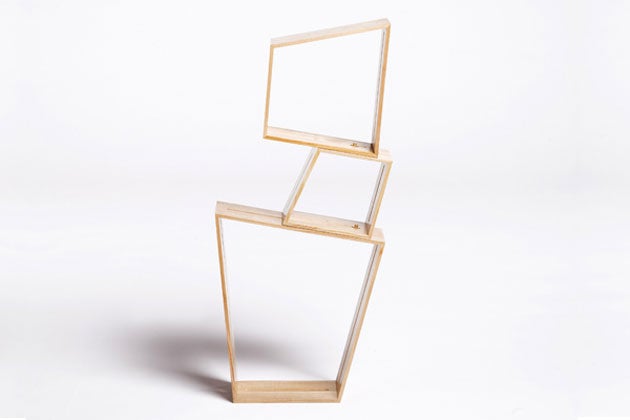Did Milan Furniture Fair get crunched?
Designer furniture brands are planning different tactics to survive the recession, unveils Annie Deakin

What does design look like in a global recession? This week and last, thousands flew to Italy to investigate how the credit crunch is affecting design at the Milan Furniture Fair (MFF). Fuelled by frothy capuccinos, buyers, bloggers and editors speculated how (and if at all) the economic lull will sour tomorrow’s furniture market.
MFF is the climax of the design calendar, the most hyped up annual event for furniture specialists. Would it be a flop this year? Despite the crunch, the hotel rooms were all sold out and every square foot of exhibiting space had been rented with a waiting list of over 300 companies.
Search for the perfect furniture with The Independent house and home database, powered by mydeco.
Faced with the financial climate, certain established brands are battening down their hatchet; others are tailoring lines to these times and the boldest of entrepreneurs are setting up shop.
Let's look at prominent design firms who have weathered previous recessions - and, crucially, come out the other side. UK design champions The Conran Shop, SCP, Tom Dixon and John Lewis have launched new lines catering to a recession-hit market.
Amid the cobbled streets of Milan, SCP, which was founded in 1985, revealed it's ploy for riding out this storm; their latest furniture collection Boxed could be the key to their survival this recession. Affordable, durable and small enough to be carried home SCP's Boxed collection includes a simple ash stool by promising designer Alex Hallum, a coat rack by Kay and Stemmer and cherry shelving units by Peter Marigold.
Stripped-back austere aesthetics is a prominent trend this season. Think of the peeling wallpaper and cracked ceilings in designer Rabih Hage's fashionable Rough Luxe boutique hotel in London.
In Milan, Dixon - who has been in the industry for 20 years - presented his latest no nonsense range, called pointedly, Back to Basics - Utility. In light of the recession, Dixon argues that ‘"design should be the best way to fight our way out of the situation."
Following Dixon's mantra, Kartell refuses to be defeated by the credit crunch and has launched new products to celebrate its 60th anniversary this year while John Lewis has responded by created First Home, a range of affordable furnishings.
You learn from your past. In the last recession, furniture sales plummeted at The Conran Shop while accessories sales soared. Today - amidst a financial slump - The Conran Shop furniture sales are up 35 per cent. This is, in part, courtesy of The Conran Shop's ingenious campaign Style to Stay. The message is clear; buy iconic design (for example, by Eames or Dixon) that will endure longevity. Polly Dickens, Creative director, has noted that their customers are concerned with waste and landfill; instead of bulk buying into trends that date quickly, consumers want pieces to keep.
The economy is difficult for established brands - three leading brands Cassina, Cappellini and Poltrono Frau pulled out of the official MFF venue choosing instead, to confine themselves to downtown showrooms. It is even harder for fledgling firms.
It takes a brave man to launch when those around him are struggling. Despite the dismal forecasts by financiers, ambitious new brands launched, as they do every year, at Milan. The pluckiest company unveiled was the luxury design firm Skitsch (as in "kitsch" with an added "s"), a €16m start-up selling furniture by the Campana brothers, Philippe Negro and others. The man behind Skitsch is Renato Preti, a home furnishings financier who formerly owned Bulgaria and B&B Italia. Other new ventures include the fashion label Diesel's first furniture and lighting collection in collaboration with Foscarini, Moroso, and Zucchi. Across town, co-founder of Established & Sons Mark Holmes launched a new brand Minimalux which sells itself on the potent pairing of austerity and luxury - think a shaker simple desk paired with solid brass and gold plating dinnerware.
So what does design look like in a recession? Tweets emanating from the sprawling exhibition halls of Milan were by and large optimistic - brainwashed, perhaps, by the red posters plastered on local buses messaging that MFF was the antidote to the recession. Dixon says, "I do think that design thrives on constraints. If there is a wall, we need to jump over it. Design should be there to find ways of improving things, not just make a new shape or be more expensive." The show must go on.
Subscribe to Independent Premium to bookmark this article
Want to bookmark your favourite articles and stories to read or reference later? Start your Independent Premium subscription today.

Join our commenting forum
Join thought-provoking conversations, follow other Independent readers and see their replies